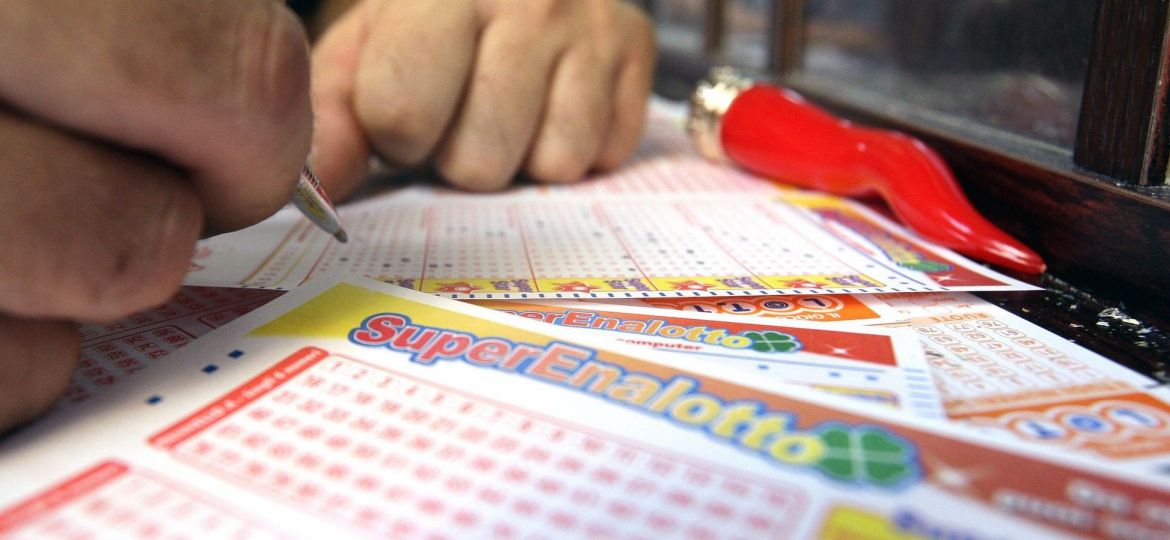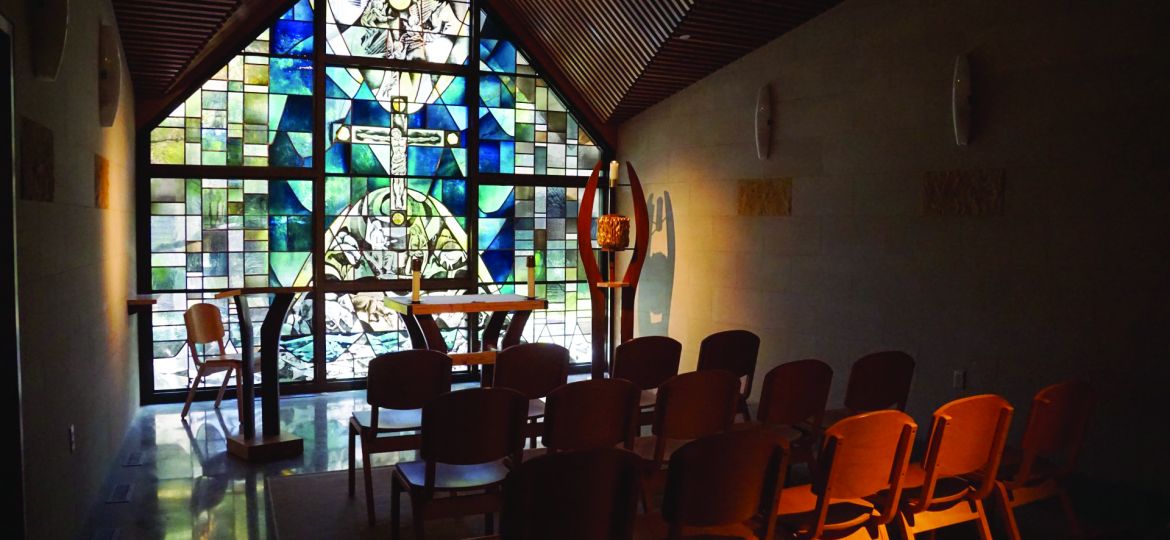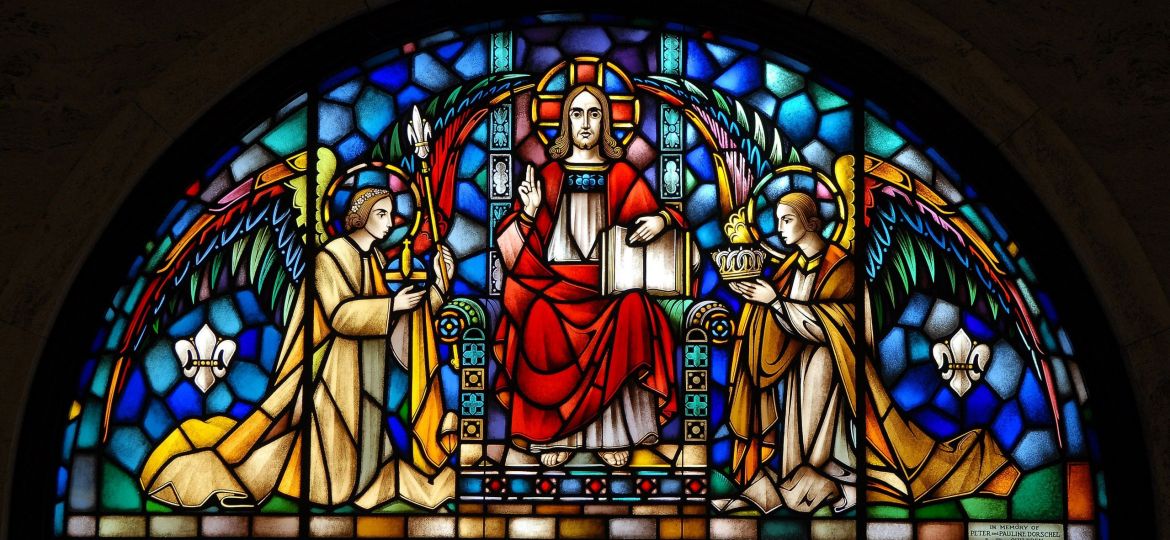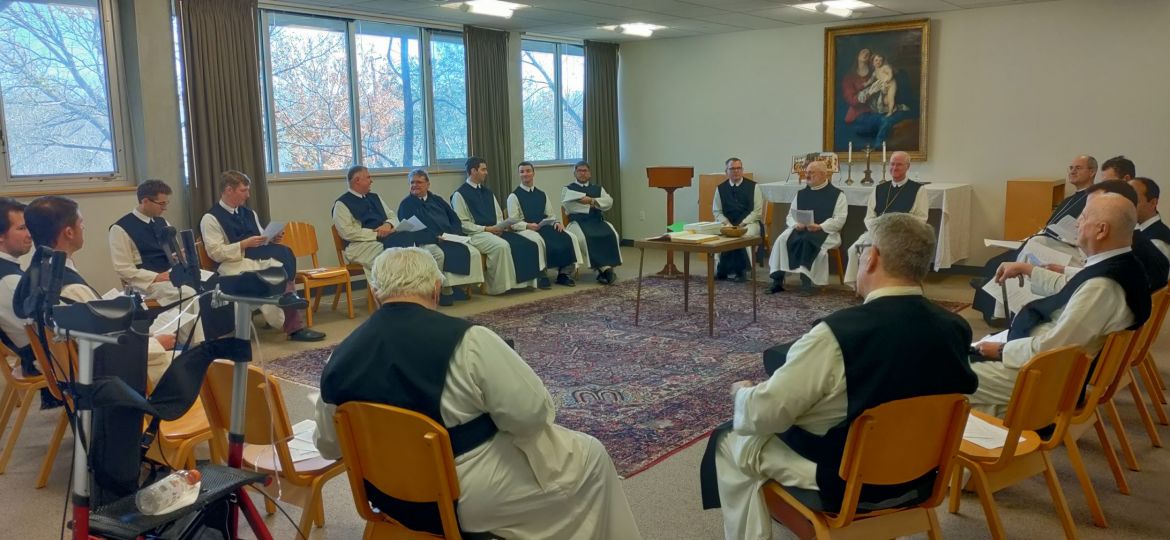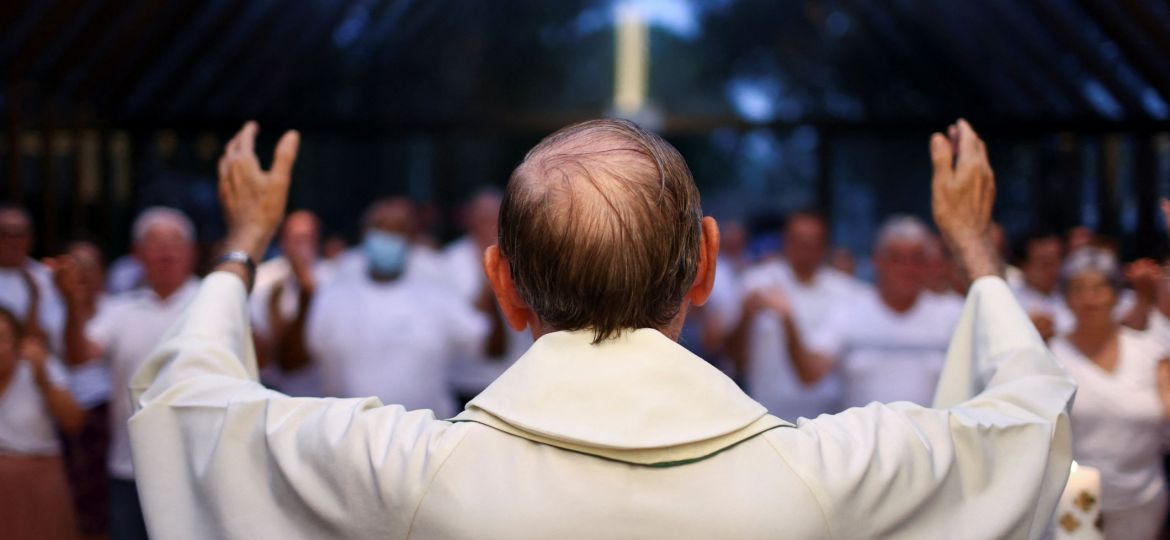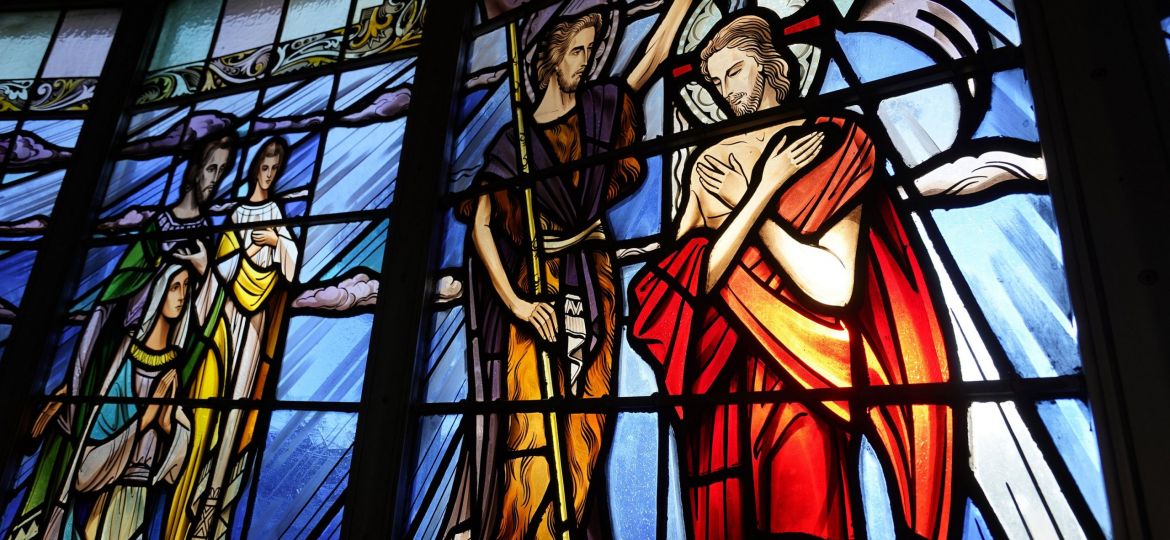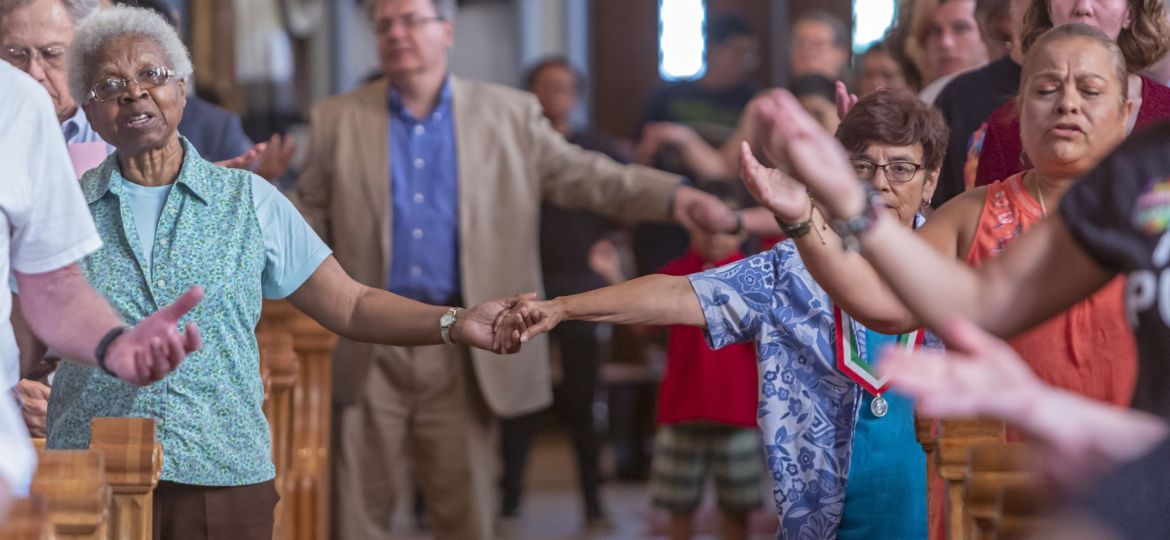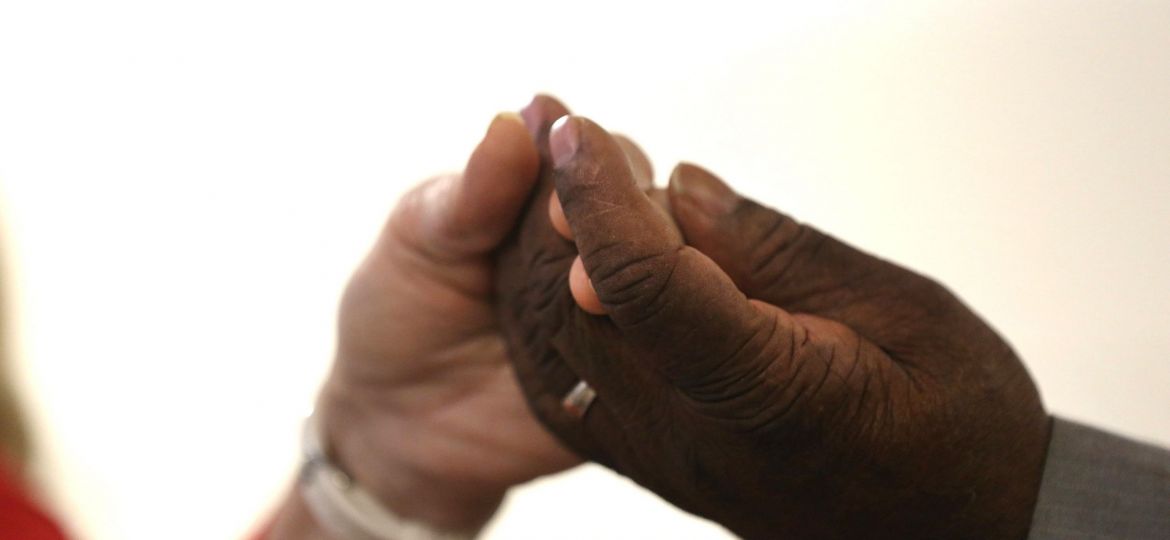Gambling is growing in our country — and quickly. My impression is that we have work to do to be informed about what is happening and to let ourselves be formed by what the Church teaches, lest so much happen without the constructive engagement of Catholics and of anyone else concerned about social justice.
Death, disobedience, and sin are not part of the original divine plan, and yet they are manifest facts of human life. How, then, is the divine will to be done by me or any other weak-willed man or woman dwelling in the valley of the shadow of death?
The current object of my loving mystification is “Thy kingdom come.” In an effort to be slightly less intimidated by this vast and marvelous petition, I will arrange my musings as responses to the time-honored journalistic questions.
One of the most important rooms in a monastery, after the church, is the chapter room. This is the place where monks meet to do various things as a community: hear an exhortation from their abbot; listen to a spiritual reading (often a chapter from “The Rule of St. Benedict”); deliberate and vote on the important material and spiritual questions that arise in a monastery, such as who should be the abbot, whether to welcome a young monk as a permanent member of the community through solemn profession, and how best to structure their lives to promote God’s purpose.
Jesus poses a problem when He instructs us to pray to the Father with the words “hallowed be Thy name” (Matthew 6:9). Many Psalms exhort the faithful to praise or call upon the name of the LORD (Psalm 113:1; 116:13; 148:13), and others assert that “Our help is in the name of the LORD” (Psalm 124:8). But how can human beings hallow — that is, make holy — the name of the LORD (in Hebrew, YHWH), Who is already, always, and automatically holy, utterly beyond our ability to add to or subtract from, to influence or change?
The death of John the Baptist is a chilling story for multiple reasons. It is a story about the fury of Herodias, who hated John so much for speaking the truth about marriage that she manipulated Herod, her would-be husband, into murdering him. It is also a story about the weakness of Herod, who just waited too long to do what he knew was right – to the point that doing the right thing required a sacrifice he felt incapable of making.
“I want to go to heaven” is a common expression by Christians when asked to give a reason for their faith. Curiously, the phrase “to go” or “to get to heaven” is not found in the Bible. While heaven is rightly considered the goal and magnetic pull on everyone’s spiritual compass, it is neither a destination nor a physical place as Jesus presents it in the “Our Father” prayer.
Technology is everywhere. There seems to be a gadget or app for everything. Computers for calculating; engines for ease; chemicals for control — is there any aspect of our lives untouched by instruments and processes?
The Our Father is the most familiar of all Christian prayers. Its constant recitation inevitably leads to a glazing of our mental eyes, rendering us numb to the shocking permission Jesus grants us in the opening words. He invites us, even requires us, to claim familiarity with God. “Pray like this,” Jesus tells those gathered for His Sermon on the Mount: “Our Father, who art in Heaven…” (Matthew 6:9).
As another election concludes, Catholics should remember we are responsible for helping to unify our country. One way to do that is to announce together the Church’s prophetic call to both parties.

